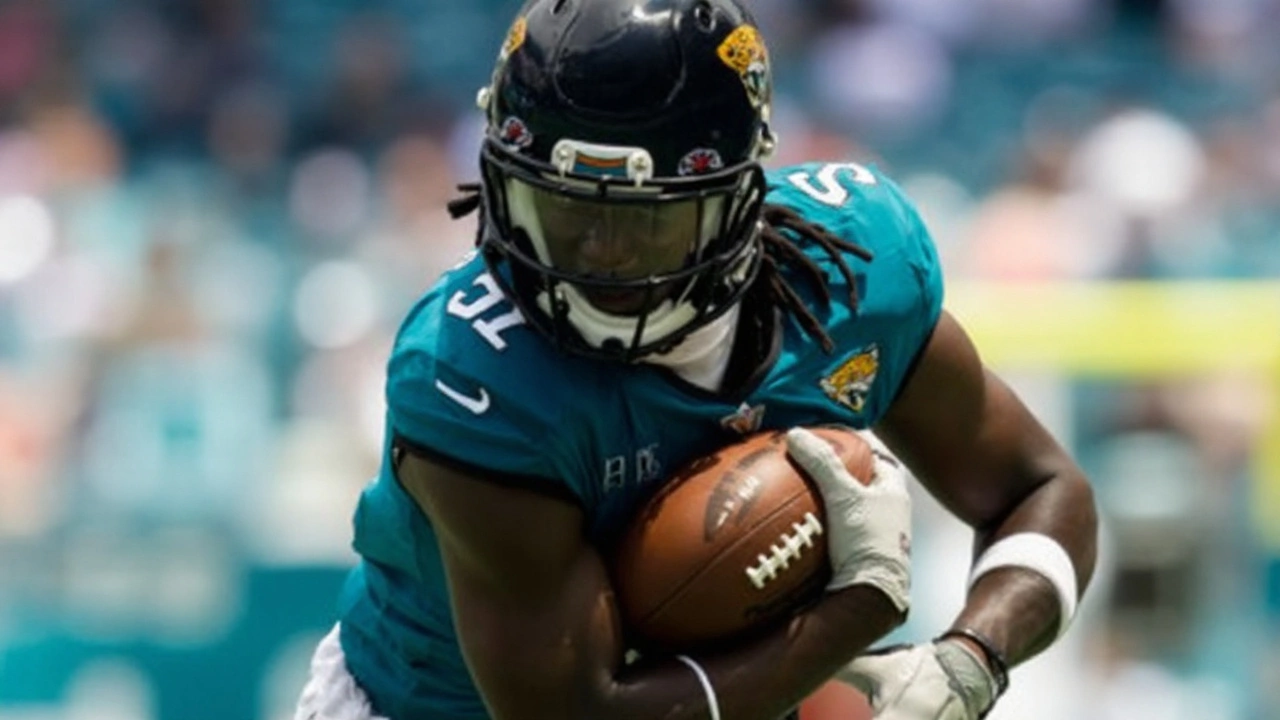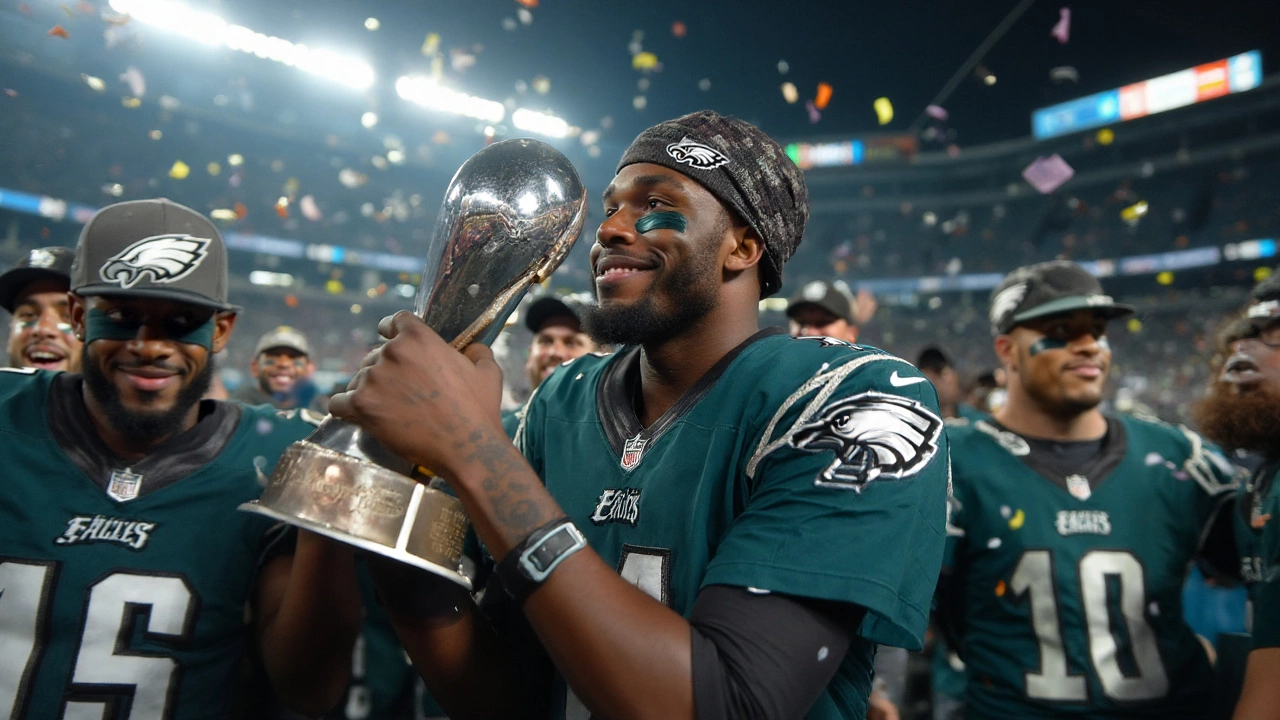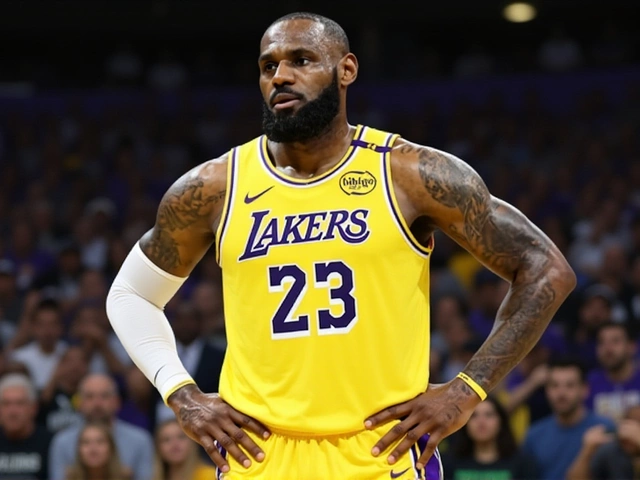By Zander
Eight straight scoring drives, a 58-yard game-winner, and an ejection in the first quarter—Week 1 didn’t tiptoe in. The Philadelphia Eagles opened their title defense with a 24-20 win over the Dallas Cowboys on Thursday night at Lincoln Financial Field, a rivalry game that packed an entire month of storylines into one furious season opener. The defending champions have now won seven straight games dating back to last season.
The night turned chippy almost immediately when Eagles defensive lineman Jalen Carter was tossed in the first quarter for spitting on Dak Prescott. That moment could have rattled Philadelphia’s defense. Instead, the unit regrouped, got a timely takeaway, and held Dallas to 20 points after a fast start by CeeDee Lamb and the Cowboys’ offense. On the other side, Jalen Hurts looked like the steadying star the Eagles needed, rushing for two touchdowns and controlling the tempo when drives tightened up.
A chaotic start, then a heavyweight grind
The early script looked nothing like your typical opener. Both offenses came out sharp and aggressive—quick rhythm throws, designed quarterback runs, and heavy personnel to challenge the edges. They traded scores on the first eight possessions, an unusual run of efficiency for two defenses that pride themselves on pressure and speed. Dallas blinked first with a costly fumble, and that crack in the door was all the Eagles needed to edge in front.
The tone shifted again when lightning in the area forced an hour-long delay. Breaks like that can flip a game, especially in September when humidity lingers and legs tighten. Philadelphia handled it better. The Eagles returned to the field with cleaner execution, leaned on the run game, and protected the ball. The Cowboys, who had rhythm early, never fully found their stride after the stoppage.
Hurts’ touchdowns came on patient reads and hard cuts—no panic, no hero ball. He used motion and the threat of the sneak to freeze linebackers, then hit creases for short-yardage scores. Saquon Barkley punched in another, his first regular-season touchdown in midnight green, and gave the offense a physical base that opened play-action and kept Dallas guessing. When the game demanded a high-wire kick, Jake Elliott delivered from 58 yards, providing the final margin the Eagles would not give back.
Philadelphia’s defense didn’t dominate the stat sheet early, but it won the moments that mattered. Linebacker Jihaad Campbell ripped the ball out to force a crucial fumble, and rookie cornerback Quinyon Mitchell was in the right spot to pounce on it. That sequence flipped field position and momentum, the kind of swing that often decides tight division games in Week 1.
Dallas had chances. Lamb lit up the first quarter, winning off the line and finding space on crossers. Prescott was efficient early, taking what the defense gave him and avoiding dangerous throws into traffic. But the Cowboys stalled in the second half, and the Eagles’ front—down Carter—found enough pressure with rotation and games up front to disrupt Prescott’s rhythm on key downs.

What it means for both teams
This was the first time these rivals opened a season against each other since 2000, when the Eagles rolled 41-14. The context this time was different: Philadelphia carried in an 8.5-point favorite tag—the biggest spread for a defending champ in a kickoff game since Tampa Bay in 2021—and still had to grind. The win underscored a reality about this roster: it can win ugly, even when emotion spikes and plans get scrambled.
Just as important, the Eagles bent but didn’t break in situational football. They managed the clock after the delay, mixed personnel to keep Dallas off balance, and leaned on special teams when the offense bogged down. Elliott’s leg remains a weapon from distance, which changes how teams defend the middle of the field late.
For a Dallas team that came in with plenty of confidence—and a recent edge in the rivalry behind Prescott’s past success (four wins in five against Philly since 2021 with a dominant touchdown-to-interception split)—this was a reminder that small errors carry big costs on the road. The Cowboys turned it over at the wrong time. They struggled to sustain drives after halftime. And when the Eagles pulled ahead, Dallas couldn’t flip the field with explosives like they had early.
Discipline will be a talking point on both sides. Carter’s ejection will draw league review, and the Eagles will expect more composure from a front that’s built to finish games, not adjust on the fly without a starter. Mike McCarthy’s group will look hard at ball security and red-zone sequencing, because you can’t let chances slip in a one-score game against a team that tackles well and kicks from deep.
There was plenty to like for both staffs, too. Philadelphia’s run-pass option looks were crisp, with tight ends motioning to manipulate Dallas linebackers and create angles for Hurts and Barkley. The Cowboys showed early how their speed at receiver can stress even a deep cornerback room. And both pass rushes flashed despite the scoreboard, which usually favors offenses in early September.
Key moments that tilted the night:
- The ejection: Carter’s early exit forced the Eagles to rework their defensive line rotation on the fly. The group settled, anchored by veteran snaps and timely pressures.
- The lightning delay: An hour mid-game pause often breaks rhythm. Philadelphia emerged steadier, with cleaner play-calling and better ball security.
- The takeaway: Campbell’s forced fumble, scooped by Mitchell, flipped the script just as Dallas threatened to take control.
- The kick: Elliott’s 58-yarder stood up as the difference, putting Philadelphia ahead in a field-position battle that got tighter as the night wore on.
Zooming out, Philly’s 1-0 start keeps the pressure on the rest of the NFC East and adds another chapter to a rivalry that rarely disappoints. Dallas drops to 0-1, but it’s Week 1—a small sample with useful lessons. The tape will show missed chances, yes, but also a defense that competed in the red area and an offense that created early separation against a top-tier unit.
The storyline that lingers is how quickly the Eagles stabilized after an emotional flashpoint and a weather delay. Good teams don’t always look dominant in September. They win the handful of plays that shift outcomes. On a night that swung between chaos and control, Philadelphia did just enough of both.
One more thing about stakes: rivalry games in prime time come with noise—extra attention, extra heat, extra pressure. The Eagles vs Cowboys spotlight can expose flaws, and it can also harden strengths. For the champs, the opener checked an important box: find a way. For Dallas, the fix is clear—clean up the ball, finish drives, and turn early sparks into four-quarter consistency.
Next up, the Eagles get a full week to reset and manage any fallout from the ejection while tightening up protection and penalties. The Cowboys return to work knowing the margin in this division is thin and that September is where you build habits that last into December. Week 1 rarely decides anything. But it can reveal who handles the chaos.





